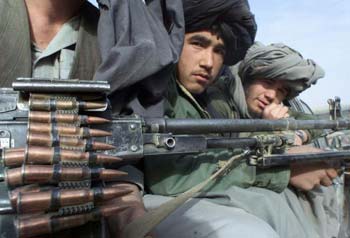Interview with Kevin Barrett: Middle East spinning out of Empire’s control
password spinning
 Osama Bin Laden’s goal in 9/11 was to suck the US into Afghanistan and Iraq, sparking a regional conflagration that would sweep away the imperial legacy and establish a new caliphate. Over a decade later, this plan is still on track. As he led his jihadists triumphantly into Mosul and declared an emirate on Iraq-Syrian territory, ISIS ‘caliph’ Abu Bakr al-Baghdadi announced that the 1916 secret Sykes-Picot Agreement between Britain, France and imperial Russia was at last being dismantled.
Osama Bin Laden’s goal in 9/11 was to suck the US into Afghanistan and Iraq, sparking a regional conflagration that would sweep away the imperial legacy and establish a new caliphate. Over a decade later, this plan is still on track. As he led his jihadists triumphantly into Mosul and declared an emirate on Iraq-Syrian territory, ISIS ‘caliph’ Abu Bakr al-Baghdadi announced that the 1916 secret Sykes-Picot Agreement between Britain, France and imperial Russia was at last being dismantled.
 Afghans sleepwalked to the polls to replace Karzai, with a choice between a US-educated ex-World Bank official Ashraf Ghani (and his warlord VP Dostum), or the Tajik Abdullah Abdullah who threatens chaos if he loses. Iraq’s April elections, the first national elections since the US declared ‘success’ and left in 2011, provide an indication of what could be in store for Afghans. Rather than confirming the new order, they precipitated a ‘surge’ by Sunni insurgents, who quickly capture a third of the country, discrediting the whole US-imposed electoral process.
Afghans sleepwalked to the polls to replace Karzai, with a choice between a US-educated ex-World Bank official Ashraf Ghani (and his warlord VP Dostum), or the Tajik Abdullah Abdullah who threatens chaos if he loses. Iraq’s April elections, the first national elections since the US declared ‘success’ and left in 2011, provide an indication of what could be in store for Afghans. Rather than confirming the new order, they precipitated a ‘surge’ by Sunni insurgents, who quickly capture a third of the country, discrediting the whole US-imposed electoral process.
Plans for consolidating Iraq and Afghanistan as pro-US regimes appear to have collapsed with ISIS’s capture of Mosul, facing virtually no resistance. The Kurdish Peshmurga militia took control of Kirkuk, and in the south, Iraq's Shia brace to resist ISIS. Iraqis are now living through the 1990s Afghan scenario, when the Taliban quickly took over a country in the grips of sectarian violence with the promise to disarm militias and provide security. In Iraq’s Sunni majority areas, a population exhausted by war and violence is now faced by the same prospect of accepting a harsh rule by Sunni extremists who promise security.
 As Egypt inches towards the first anniversary of the July 3 coup, the economy continues to flounder. The military-backed reverting to Mubarak-era policies has been buttressed only by lavish handouts from the Gulf Security Council (GCC) states and vague promises of future investment by western business, namely Coca Cola.
As Egypt inches towards the first anniversary of the July 3 coup, the economy continues to flounder. The military-backed reverting to Mubarak-era policies has been buttressed only by lavish handouts from the Gulf Security Council (GCC) states and vague promises of future investment by western business, namely Coca Cola.
Despite loud media support for the military government, ongoing gas shortages and power outages, plus Egyptian Prime Minister Hazem el-Beblawi’s minimum wage law, which excluded the neediest 75% of the labor force, sparked a wave of wildcat strikes that forced his government to resign on February 24.
This was the scenario as Egyptian officials came cap in hand to the Arab Summit held in Kuwait in late March. There was little cause for cheer at the meet, with the GCC crowd fighting among themselves, Syria's membership suspended, and the rest of the members seen as economic basket cases.
Interview with Kevin Barrett, summarizing the main features of postmodern imperialism, considering the main tendencies within political Islam as epitomized by Azzam, Bin Laden and Zawahiri
Page 38 of 54